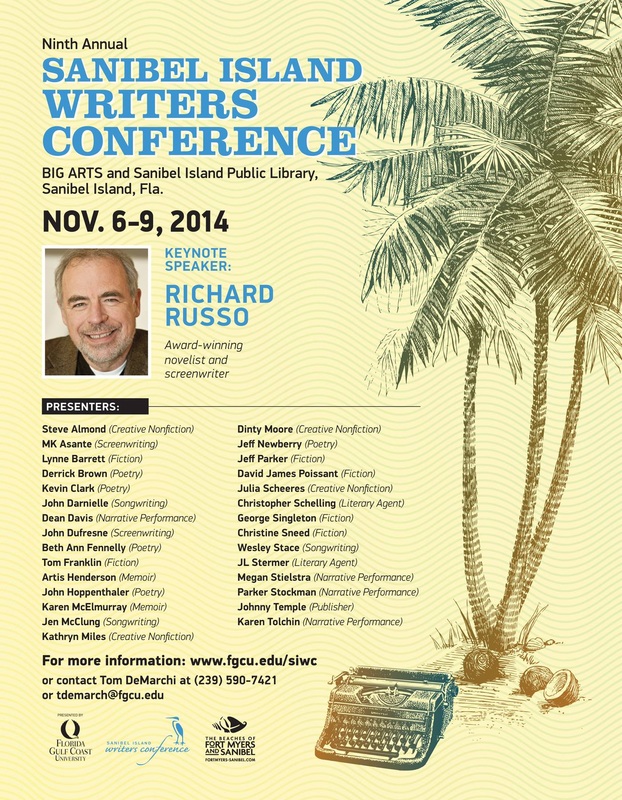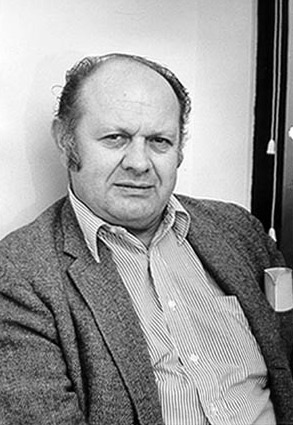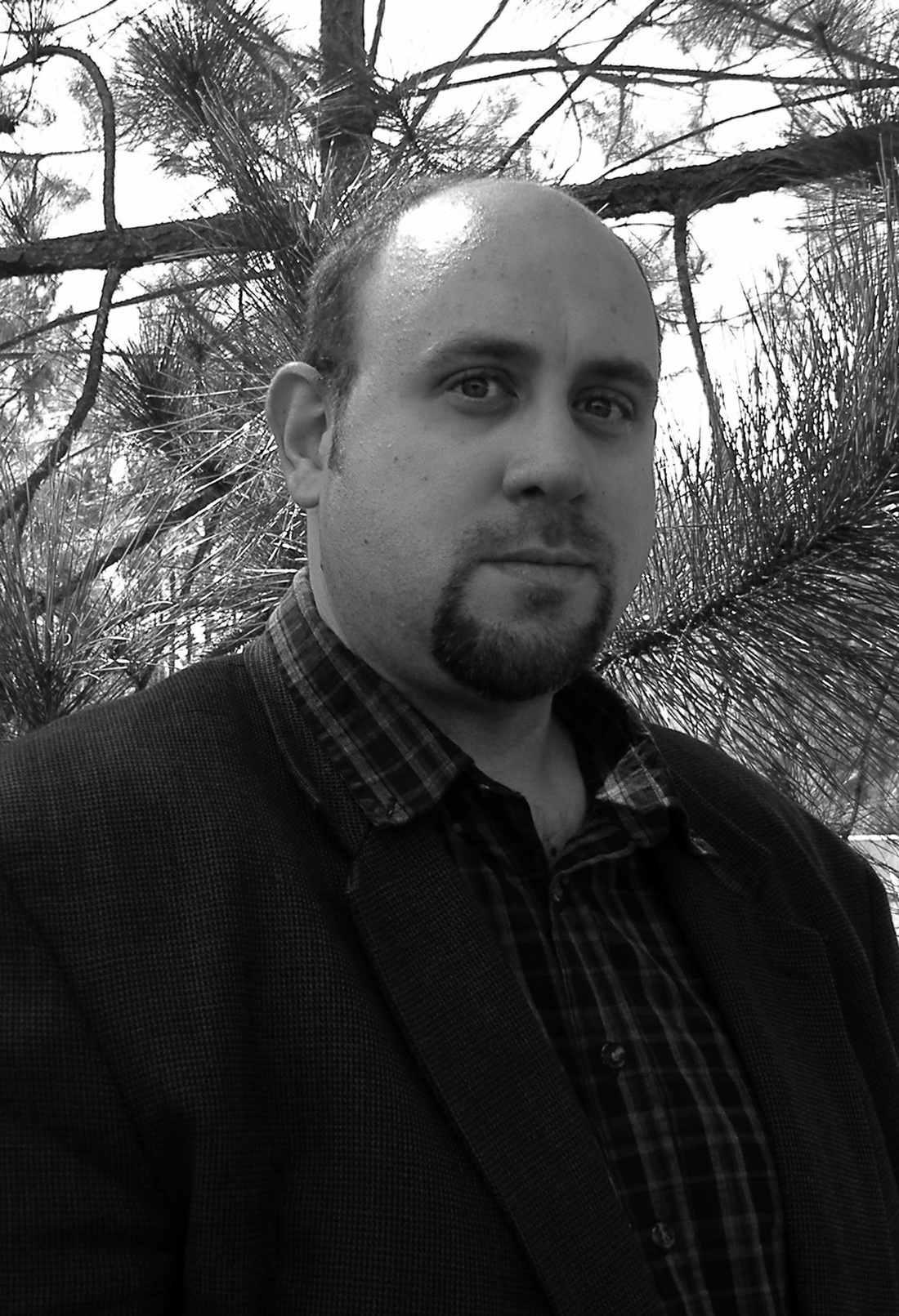 My friend, the writer Laura Valeri, has written a thoughtful reply to Ryan Boudinot's "Things I Can Say about MFA Writing Programs Now that I No Longer Teach in One," an article that has engendered much conversation--some heated, some in agreement, some dismissive--on social media as of late. I posted the article here and on my Facebook page, too. As I said then, I don't necessarily agree with all of Boudinot's points, but I think he does raise some interesting questions for those who teach creative writing in the academy, even if those questions lead to paths that are well-trod. Nonetheless, I think this kind of debate/conversation is good for our profession, tiresome as some find it--I find the MFA-bashing tiresome, myself, for the record. Laura Valeri, "Those Who Can, Teach: A Formal Reply to Ryan Boudinot's Post on Teaching" My job [as a creative writing teacher] exists because of students who don’t read much, students who love to write but have difficulties expressing themselves, students who really want to excel and be great but are misinformed about the discipline and skills it takes to get there. We as teachers simply cannot dismiss students as “not having it” and “not being born with it” or “too late to get to it.” It’s unacceptable. If we accept them into MFA programs, take their money, and time, and hopes and dreams, then we have to make it work.
1 Comment
 I do not teach in an MFA program. I didn't attend an MFA program. I did, however, complete a PhD with a focus in creative writing. I am of two minds about the critique of MFAs. On the one hand, I find the elitism and exclusivity of the AWP Industrial Complex troubling. It reduces all forms of writing to one kind. On the other hand, MFA programs have produced some remarkable writers. Further, MFA programs elevate the study of writing and emphasize some important truths about the writing life: to write well, one must read well; to write well, one needs a community of writers. So, I post this article not out of hatred for the MFA programs around the nation. I post it as food for thought. I hope that you'll read this and take a few minutes to think about it. Ryan Boudinot, "Things I Can Say about MFA Programs Now that I no Longer Teach in One" (from The Guardian)
I like to think that, at times, in the right light, I look a bit like one of my heroes, the poet Richard Hugo. We're both writers obsessed with place, both writers who love jazz, and both writers who see the terrain beneath our feet as a starting place, a jumping-off point, a pick-up note for poetry. Hugo's best work is improvisatory. He finds a rhythm in line one and develops a theme, like Miles Davis locked in the pocket, exploring the mode.
Hugo's work taught me that the triggering subject is the root, but the improvisation is the key. I'm nowhere near the poet was; don't misunderstand me. Rather, I see in him a kindred spirit, someone I look up to, someone who's work continues to inspire me. I'm planning a fishing trip soon. I'll look out over the Gulf of Mexico, cast a line out, and listen to the surf churning in. I'll be thinking of Richard Hugo, mourning the fact that I never got a chance to meet him. I'll try to keep this poem in my head: The Trout Richard Hugo Quick and yet he moves like silt. I envy dreams that see his curving silver in the weeds. When stiff as snags he blends with certain stones. When evening pulls the ceiling tight across his back he leaps for bugs. I wedged hard water to validate his skin- call it chrome, say red is on his side like apples in a fog, gold gills. Swirls always looked one way until he carved the water into any kinds of current with his nerve-edged nose. And I have stared at steelhead teeth to know him, savage in his sea-run growth, to drug his facts, catalog his fins with wings and arms, to bleach the black back of the first I saw and frame the cries that sent him snaking to oblivions of cress. From Making Certain it Goes On: The Collected Poems of Richard Hugo Forget all that you’ve learned. How many workshops taught me never to use a to be verb? That rule used to cripple me when I tried to write prose. Now, I write “was” and “is” as much as I want to. Open up a book by Faulkner and count the to be verbs. You’ll be shocked.
* For me, finding a writing place is key. Find a place, a physical location. Clear your schedule and go to that place. Sit down for an hour and write. Do not worry if the writing is any good. Just write. * Writing is not something to turn on or turn off. It happens all the time. I have my characters in my head constantly. If I’m working on a poem, I’m constantly chewing over a phrase or a word or a line break. To be a writer, think like a writer. * Read. Read everything from the classics to contemporary genre stuff. Read poetry. Read fiction. Read essays. Read a book by China Mieville. Then read a book by James Joyce. Read Hemingway. Read James Baldwin. Read Tom Franklin. Read Virginia Woolf. Read outside your genre. Poets, read fiction. Fiction writers, read poetry. Essayists, read fiction and poetry. Read challenging writing. Read writing that makes you use a dictionary. * Read and learn. Read like a writer. Ask How does this writer get away with that? * Fall in love with language. Pick favorite words. Enjoy those words. Fall in love with the sounds of words, the intrinsic rhythms of language. * Let literary theorists worry about literary theory. * Imitate the writers you love. Imitation is how all children begin to learn, and imitation is how writers begin to write. * Forget about originality. Your writing is original because you are writing it. Stereotypes emerge from half-finished work. If you tell the truth (whatever that may be and however that may appear), then your writing will be fresh and original. * Don’t worry about developing a “voice.” Your voice will emerge as you write. Despite contemporary thought that tells us the intrinsic self is a fiction, you know who you are. Your writing will sound like you eventually. * Ignore writers who tell you that you can’t or should write a certain way. Ignore writers who tell you to avoid certain subjects. Ignore anyone who tries to tell you that your writing is not important. * Readers are important, but the story or essay or poem needs to please you first. Write the kind of work you want to read. * Do not quit. Develop a damned stubborn insistence on your own writing. Harry Crews says that writing is like fishing. You have to keep a worm in the water. Do not let a day go by without casting into the water. * Writing is thinking. Just because you don’t a new chapter or a new poem every day doesn’t mean that you’re not writing. Keep your head in your work. * Care enough about your writing to discipline it. Don’t pretend that grammar rules are beneath you. If you don’t care about your writing, why on earth would you expect anyone else to? * Revision isn’t “fixing errors.” Revision is figuring out what the story/poem/essay is all about. Revision is writing. Writing is revision. * Read your own work aloud. Listen to your words. Enjoy how they feel in your mouth. Practice visceral reading: emphasize syllables as you read. Try go find the music in your writing, be it poetry or prose. * Don’t worry about writing “literature.” History will decide whether or not your work stands the test of time. * Find a community of writers, folks who understand what you’re facing. Make friends. Swap work. Understand that while writing is a lonely business, a writer doesn’t have to be a lonely soul. Nix that “suffering artist” nonsense. There’s enough suffering in the world already. I’ve been reading a lot of prose this summer: William Gay, Tom Franklin, Charles Frazier, Larry Brown, all southern novelists who have a love for the land and whose work reflects that love. I’m working on a book, myself, and I look to these writers for guidance and inspiration. And as much as I love reading their work, however, I often find myself simply overwhelmed, and I sink into this pit of self-doubt. I worry that I’ll never be as good a writer as any of these guys, and I think Why try?
This is a hard place for any writer to inhabit. On the one hand, I need the inspiration. When I study how Larry Brown seamlessly intertwines the third-person narrative voice with the character’s voice, I am driven to try something similar in my own prose. At the same time, I think, “If Brown did it this way, when why would you even try? He’s a master. You’re a journeyman, at best.” There is no easy answer here. I’m driven to imitate Brown and Gay and Franklin and Richard Hugo and Yusef Komunyakaa and numerous other writers for the same reason I imitate Slash and Buddy Guy and Stevie Ray Vaughan on guitar: the voice is one-of-a-kind; an irresistible charm comes over me when I hear it. No, I’ll never write a Larry Brown character any more than I’ll play a solo exactly as Slash does. But in my imitation, I slowly figure out my own voice, who I am on the page. Poets talk a lot about voice, but fiction writers have a voice, too, a way of writing prose that is unquestionably their own. This voice is not something slap-dash, something thrown together. No matter how “natural” it sounds, I believe that this voice emerges from the wisdom accrued through revision and failure. The more you write, the more you fail. The more you fail, the more you learn. Then, you fail again, and, to quote Samuel Beckett, you fail better. And you fail better. And you fail better again. I’m very hard on myself, and I don’t handle failure well. This probably explains why writing prose is hard for me. I’ve spent the better part of my writing career writing and reading poetry, and I think that I’ve come to some understanding of it. I am by no means a perfect poet (God, who is?), but I think I understand the genre, and I have an understanding of my own strengths and (many) weaknesses as a poet. Learning to write poetry was/is for me a process of failure, too. I have twice as many (perhaps three times as many) abandoned poems as I do successful poems. When I get frustrated writing prose (as I have been of late), it’s helpful to remember those failures that I’ve had as well as the failures that have yet to come. Whitman said “Vivas for those who have failed.” He could have been talking to writers and artists everywhere. He likely was. I’m still struggling to learn how to write prose. But I think, if there’s one thing that any successful writer has in common, it’s this: a damned, hard-headed, dogged persistence. You write, you fail, and you write again. Back to it. The page is waiting. An interesting and heated conversation took place on my Facebook page a couple of days ago after I posted this message:
Holy cow. I just some ink on a rejection from a top tier journal. Very nice. It's rare that a rejection makes me feel good, but this one did. I won’t go into the specifics of the conversation nor will I name the journal, but I will say that the vehemence and anger displayed in the conversation didn’t surprise me. There are a lot of poets writing today, and there are a lot of journals out there featuring many different kinds of aesthetics. Some poets struggle to find an audience. Other poets seem touched by the poetry gods and become well-known very quickly. I’ll be honest: it’s hard not to be jealous when I see poets whom I’ve known a long time publishing their third and fourth book and getting featured in The Southern Review, Paris Review, and Ploughshares (for example). I want that kind of readership, too. I want that kind of audience for my work. And I want the respect of my peers. [Edited to add: I ultimately want to write well-crafted poems. History can decide if they're 'great.'] Perhaps, too, I’ll confess, that I’m trying to build a career. “Careerism” is a nasty word in poetry circles. It carries a stink with it that keeps lots of artists at a distance. Indeed, some poets I’ve met even hold that to think about a “book” of poems as opposed to a single poem reveals (in me) an ugly need to be known. I disagree. There’s nothing wrong with a writer building a career. For some reasons, however, I’ve found that poets in particular bristle at this notion. The reasons are probably varied, and I can only guess at a few, and I think those reasons have something to do with money. Is poetry somehow more “pure” that prose? Does the lack of money associated with poetry indicate that the genre is somehow immune from the marketplace of ideas? Make no mistake: I do believe that capitalism hurts art. One cannot reduce a work of art to its monetary value any more than one can measure the affect a work of art has on a viewer or reader. At the same time, U.S. poets live in this system. Furthermore, many of us are academics, too, and our careers as writers are entangled (for better or for worse) with our careers as teachers. My poetry publications have a direct effect upon my teaching career—I teach composition, mainly, not creative writing (for the record). This fact sometimes troubles me—well, to be honest, this often troubles me. Still, I understand that this is how things are. However, building a writing career is most certainly not why I started writing. I started writing at first just to express myself. Like most kids, I felt strange and awkward, and writing (songs and stories at first) gave me an outlet to try to understand my place in the world. I decided to pursue writing in school because I couldn’t imagine a life that didn’t place writing at the center of what I did. And now, though my writing career has become a part of my teaching career, I don’t sit down thinking, “Okay, that tenure review is coming up. Let me compose a new poem.” I doubt any writer thinks this way. But to return to that Facebook conversation: my feelings about that rejection had nothing to do with my career as a writer or an academic. I respect that nameless journal greatly. I respect its editors and the writers who publish there. I respect its long history. I would love to be included in its pages, and the fact that the editors took a few precious moments to praise my work and invite a resubmission means a lot to me. I hate to think that the poetry world has gotten so jaded that we all scoff at the notion of publication. Good and bad writing does exist, and publication can be a kind of validation. But at the end of the day, it’s just the page and me, trying to make sense of the world, trying to make meaning with syllables. I’ve spent the last few weeks furiously editing my poetry manuscript, going over each word carefully, and rearranging the book. I feel that the finished product is strong—very strong. I worry that I probably wasted a lot of money this past spring term submitting to contests, but I suppose that’s part of a writer’s life these days. I wonder how much money I’ve spent the past three years on contest fees? I don’t even want to know.
Which, of course, makes me wonder: is the contest route the only way to get a book of poetry into print anymore? Of course not. Some presses offer open reading periods. At the same time, however, many of the better small presses open their doors to unknowns (like yours truly) only during contest season. But I’m getting off track here. I wanted to write about editing and architecture, particularly the overall arc of a book of poems. The last decade has seen the publication of many books of poems that are project-oriented. I think of Tyehimba Jess’s amazing debut, Leadbelly, a biography-in-verse of the famous blues singer. I think of Kevin Young’s Black Maria, a noir-in-verse that’s well worth a read (or re-read, as it were). Books by Jake Adam York, Sabrina Mark, Sean Hill, Danielle Pafunda, and others pop to mind. I don’t know if this is something new in poetry publishing1. And I don’t want to pass a value judgment on this trend, saying whether it’s good or bad. It just is. And because it just is, I found myself looking for some kind of overarching something to hold my book together. I found it, I believe, but I don’t want to talk too much in specifics here on my blog. Suffice to say that this urge to build a book as a “project” (for lack of a better word) might spring from my love of narrative fiction. I come to poetry as a storyteller. From my earliest years, I told stories (often whopper lies to whomever would listen). When I first went to college, I wanted to be a novelist and write books and follow in the footsteps my then-heroes, Ernest Hemingway, J.D. Salinger, and Jack Kerouac. I loved narrative, then, and I still do, now. At the same time, I have a musician’s love of the lyric moment. As a guitarist, I like getting in a pocket, some blues or jazz riff, and staying there as long as I can, working the scale, working the box. I love how a writer like William Matthews does the same thing in print, occupying a moment in time and exploding it, a al John Keats. Rodney Jones does the same thing for me, though he manages to somehow be a lyric storyteller. Which is what I want my book to be: a lyric narrative. Or perhaps a narrative lyric. Or something. I think of the jazz musician’s journey, the way he sets out from the tonic note and occupies that space before returning to the dominate. Jazz is this way—the story of leaving and returning. But it’s not just the overall story of departing and coming home that interests me about jazz. It’s the journey itself, the way the soloist brings himself back home. That’s what interests me. That’s the kind of poetry I’d like to write. Recommended reading: Michael S. Harper’s Dear John, Dear Coltrane, Ed Pavlic’s Winners Have Yet to Be Announced: A Love Song for Donny Hathaway, T.R. Hummer’s The Infinity Sessions _____________________________ 1 Of course, in the end, the overarching project book isn’t new at all. See Charles Olson’s The Maximus Poems and W.C. Williams’ Paterson among many other, earlier examples. It was a common scene in any given undergraduate workshop in which I was enrolled: the group would discuss a poem, and afterward, the poet, connecting her life with her art would say something like, “But that’s how it happened.”
The professor would then swiftly remind the young poet that life is life and art is art. Just because something happened in life doesn’t mean that a reader has to accept it in writing. The class moved on to the next poem or short story, and the lesson stuck in my head. Over the years, I have struggled with this tension between life and art. Last night, I was lying awake, thinking about a possible poem: my mother used to clean houses to help make ends meet. She worked a split shift at the local telephone company, and in the four hour break between shifts, she picked up my brother and I from school, got us home, cleaned a house, came back home, made supper, and headed back to work. Thinking about that routine, I became fascinated by the duality of it all: two jobs, two sons, two homes, two worlds, two lives, and so on. I imagined the structure would be in couplets to emphasize the two-ness of the poem. Then, as I tried to work out the opening lines in my head, I began to think about how much of my writing emerges this way: from life experience. It’s not such a strange thing, really. I think that many writers turn to the page to make sense of the world. But in the workshops I took, I was taught that on the page itself, I learned that my life didn’t matter all that much. Only the writing mattered. I don’t want to give the impression that my professors were terrible people. I had wonderful teachers, all caring mentors who helped me as I struggled to learn how to write. Particularly Ed Pavlic at the University of Georgia pushed and prodded me, helping me to find my poetic voice. Without his advice, I’m certain that I would still be struggling to rewrite John Donne and Mark Jarman. Without Ed’s influence, I’d be the same poet I was ten years ago and not constantly evolving and restlessly experimenting. My teachers, however, knew my writing, not my life. The lines I spun were more important in the classroom that the experience that inspired those lines. My teachers understood that editors and potential publishers knew only the words on the page, not the awkward balding big man with glasses who wrote poetry to try to make sense of his place in the world. Yet, I can’t ignore my life. I can’t pretend that I don’t write from experience. I’ve had the pleasure of meeting many brilliant writers in my life, poets and fiction writers and essayists motivated by theory and poetics. Their work is widely praised and rightly so. But my writing is less theoretical, less motivated by a poetics and more experiential. In many circles, that fact makes me a second-tier poet. In writing about my life, I risk sentimentality. But I think that every piece of art should run that risk. Of course, I realize that my life experience is a kind of fiction. What I remember about my childhood is very much a narrative I’ve built over the years. But that narrative emerges from actual fact—things that I remember happening. And when I write about those things, I realize that the artifact that emerges (the poem itself) is not the actual experience but a kind of re-writing of that experience. I guess that in writing about my life, I am trying to re-write my past. For each poem, then, I have two memories: the experience that inspired the poem and the poem itself. And at various times, one is the shadow and one is the fire. One is the tenor and one is the vehicle. For me, the necessary fiction of poetry makes the experience bearable. The poem distances the reality, and the reality focuses the poem. This is starting to get tangled, and I don’t want to suggest that every poem I write works this way. For me, writing a poem happens mainly in revision, when I am fine-tuning lines, reading the work aloud, and trying to find the poem’s shape. In that process, the experience fades into the background, little more than white noise at the edge of my consciousness. But in the end, when the poem is abandoned (says Valery), I am left with a thing (artifact? by-product?) of both artifice and experience. It’s trite to say yin and yang, so I won’t. I will say that in the end, my life and my writing have become so entangled that when I read my work, I often can’t remember the actual events any more. I remember only what the poem allows me to remember. And I think that’s enough. I’ve had three acceptances in the past two months, an essay to Atticus Review, and poems to both Waccamaw and The Chattahoochee Review. I couldn’t be happier. These are all fine journals, and I’m honored to be included among the fine writers they publish. No bites on my manuscript, however. Of the six or so first book contests I submitted to this year, I’ve heard back from two. The book’s still out, though, so I suppose there is hope.
It’s curious how closely my self-worth is related to publication. As an editor myself, I know what a crapshoot publication can be. Often, editors reject work not because the work is subpar (though that happens a lot), but because the journal has already accepted similar pieces. Of course, editors all have their own aesthetic tastes, as well. Writers should read journals before submitting to them. When I started doing so, my acceptance percentage definitely rose. So, rejection doesn’t have a lot to do with me personally. Still, I find myself down in the dumps after a round of stinging rejection. I suppose that will never change. *** I’m giddily excited about the new American poets U.S. postage stamps. *** The new Cortland Review is ridiculously good. With a feature on Claudia Emerson and poems by Robert Wrigley, David Kirby, David Wojan, R.S. Smith, Mark Jarman, and Kelly Cherry, the issue even features a Music Section with a video of Emerson performing a song with husband and musician Ken Ippolito and a recording of Cornelius Eady singing a song he wrote. *** On new draft this week. That totals four new poems over the past two months. Not bad, but certainly not very good, either. I’m hoping to get back to work on the novel when the spring term ends. Teaching a three courses and advising both the college’s literary magazine and its student newspaper, I have very little time to sustain the energy I need for working on prose. I can steal time here and there to work on poetry, but prose is a different story. This summer, I’ll have the time I need to sit down for a couple of hours each afternoon to write, just as I did last summer. *** Suggestions sought: name some absolute must-read books of poems that have come out in 2012. *** It's National Poetry Month. But (and equally as important, at least for me), it's also Jazz Appreciation Month. What's your favorite jazz album? For me, Miles Davis's Kind of Blue has to be one of my tops picks, but so are Coltrane's Blue Train and A Love Supreme. *** Thanks for reading. Drop some comment love below. If you like what you’ve read, why not “Like” this post on Facebook or share it on Twitter? |
O for a muse of fire, Archives
March 2015
Categories
All
|



 RSS Feed
RSS Feed

